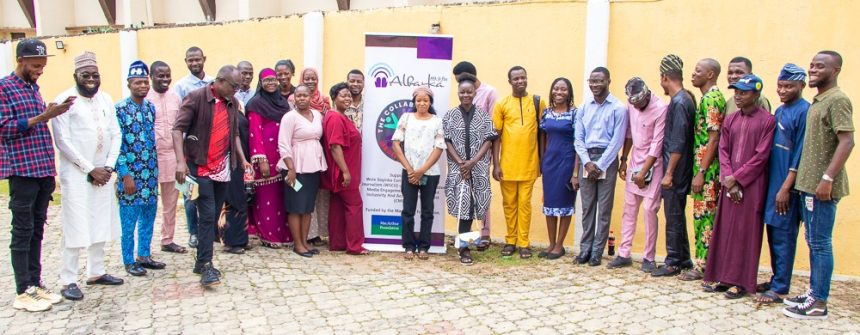From Taiye Joseph, Ilorin
Journalists in Nigeria have been called upon to maximize the potential of the Freedom of Information (FOI) Act in their investigative reports, as it remains a powerful tool for uncovering hidden stories and realities.
Ayode Longe, a representative of Media Rights Agenda (MRA) in Lagos, gave this charge during an online lecture for a group of journalists in Ilorin.
The session was part of the Collaborative Media Project (CMP), an initiative organized by Albarka FM and funded by the MacArthur Foundation.
Supported by the Wole Soyinka Centre for Investigative Journalism (WSCIJ), the CMP aims to promote development, inclusivity, and accountability in media reporting.
The lecture, titled “From Request to Revelation: How Journalists Can Leverage the FOI Act to Unearth Hidden Narratives and Unveil the Truth,” sought to equip reporters with legal tools to access information from official sources.
Longe emphasised the challenges journalists face in Nigeria, especially when trying to obtain critical information needed for public awareness, particularly on governance.
According to Longe, despite court rulings affirming its applicability, some states, including Kwara, have yet to implement the FOI law. Longe provided practical examples of how journalists can make effective FOI requests, outlining the law’s wide scope in accessing records and data critical to impactful reporting.
He also highlighted the Act’s role in protecting journalists from unnecessary legal battles, stating, “It also shields the journalist and their platform from unnecessary legal disputes.”
He further noted that the reluctance of some state governors to implement the FOI law has hindered progress in ensuring transparency and access to information.






